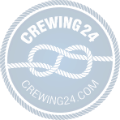
JULY 17, 2013 — Wärtsilä has received its first two orders, for a total of seven engines, for the Wärtsilä X62 two-stroke low speed engine. The Wärtsilä X62 is a midsize engine tailor made for Panamax bulk carriers, Aframax or long range 2 (LR2) tankers and container feeders. It is part of the new Wärtsilä Generation X two-stroke engine family which was recently introduced to the market.
The Wärtsilä X62 has a cylinder bore of 620 mm and its power output is in the 6,360 to 21,280 kW range. It comes in 4 to 8 cylinder configurations.
The engines covered by these first two orders will power
Four new LR2 tankers being built for Kyklades Maritime Corporation, a Greek shipowner, at Hyundai Heavy Industries Co., Ltd (HHI) in South Korea.
Three bulk carriers for Suisse-Atlantique, the Switzerland based global fleet operator, to be built at Hyundai Mipo Dockyard's (HMD) facilities in Vietnam.
The vessels will be of the new Ecodesign developed by the shipbuilders to reduce fuel consumption and emissions substantially compared to previous tonnage. Both orders were signed during the second quarter of 2013 and the engines will be manufactured by Wärtsilä's licensee, Hyundai Heavy Industries Co., Ltd. - Engine & Machinery Division (HHI-EMD), in South Korea.
The Wärtsilä X62 engine suits the new Ecodesign vessels as it meets the fuel efficiency and emission targets for the ships. Wärtsilä says that the X62 is the most compact and lightest engine in its class, giving designers more freedom to optimize hull lines and design vessels with higher pay loads and better chartering competitiveness. Compared to earlier generations of main engines, daily fuel consumption savings of as much as 10 per cent can be achieved, while lubricating oil consumption has also been optimized.
Delivery of the engines to the four 115,000 dwt tankers is scheduled for June 2014, and the vessels are expected to be in operation by the end of 2014. They will fully comply with IMO's Energy Efficiency Design Index (EEDI), which aims at promoting the use of more energy efficient and thus less polluting equipment and engines.
The engines for the three 88,000 DWT bulk carriers are to be delivered in April, July and October 2015, and the ships are scheduled to be launched in June, September and December 2015 and will operate worldwide.
"We are familiar with Wärtsilä engines, and know that we can rely on their efficiency and reliability. In particular, the new Wärtsilä X62 engine has features that are very exciting for us," says Mr. Alfred Jaeggi, Technical Manager at Suisse-Atlantique.
For Kyklades Maritime the X62 engines offer an important way to address fuel consumption and to comply with the increasingly tight environmental legislation.
A number of the ships in Kyklades Maritime Corporation's existing fleet are powered by earlier versions of the Wärtsilä two-stroke engines. Suisse-Atlantique has a history of operating ships with Wärtsilä main engines
"The current needs of the shipping industry, namely reduced operating costs, fuel efficiency, environmental compliance, and reliability are all addressed in the design of the Wärtsilä X62. These are the first of many orders that we will receive for this new generation engine, and we are delighted to be co-operating with these highly respected fleet owners and world class shipyards for these deliveries," says Mr Martin Wernli, Vice President, Wärtsilä Ship Power, two-stroke.
The new engine offers high propulsion efficiency in a unique combination of low engine revolutions and an engine design with a minimum physical width. This results in a slimmer aft vessel hull design leading to further propeller efficiency improvements. One of the main targets when designing the Wärtsilä X62 was to allow for slim hull lines to provide the ship with greater efficiency.
The Wärtsilä X62 is fully compliant with IMO Tier II requirements. It can also be equipped with an SCR catalyst to meet IMO Tier III NOx emission levels, and a scrubber to reduce SOx emissions to 0.1% - even with high sulfur fuels.
The introduction of the EEDI index also puts an emphasis on CO2 emissions and total vessel efficiency. The internal engine efficiency of Wärtsilä X62 and the possibility to apply various Power Take Off (PTO) arrangements for onboard electricity production, make it easy for shipyards to meet these new requirements.
![[ad-side]](http://www.crewing24.com/ad_images/86_banner.png)
![[ad-side]](http://www.crewing24.com/ad_images/106_banner.jpg)
![[ad-side]](http://www.crewing24.com/ad_images/103_banner.jpg)
![[ad-side]](http://www.crewing24.com/ad_images/102_banner.jpg)
![[ad-side]](http://www.crewing24.com/ad_images/94_banner.png)
![[ad-side]](http://www.crewing24.com/ad_images/89_banner.png)
![[ad-side]](http://www.crewing24.com/ad_images/105_banner.jpg)
![[ad-side]](http://www.crewing24.com/ad_images/107_banner.jpg)
![[ad-side]](http://www.crewing24.com/ad_images/100_banner.jpg)
![[ad-side]](http://www.crewing24.com/ad_images/77_banner.gif)